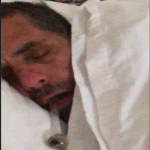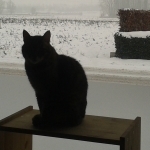Ettilvry, it sounds like you're doing this only for your wife. To please her? To stop her endless, uh, comments? It doesn't matter. I can practically guarantee that your feelings about all of this won't change unless you decide that you need to do this for yourself and then actually decide to do whatever it takes to be successful. You have to do this for your own good, not to please (or shut up) your wife.
As others have said, since you know you've been diagnosed with sleep apnea, your problem is not snoring; for you, snoring's a symptom of a life-threatening condition. So what is your problem? Not getting enough oxygen to your brain (actually, your entire system). Much of what's in this article (from
http://www.sleepapneainfo.com/faq.php:) has already been said, but it bears repeating (highlighting is mine):
Research suggests that OSA is a major contributing factor in the development of hypertension, or high blood pressure. Data from a 2003 study in The New England Journal of Medicine, reveals that, "sleep-disordered breathing is likely to be a risk factor for hypertension and consequent cardiovascular morbidity in the general population." Although many patients with OSA have clear symptoms of hypertension, as many as 90 percent of cases are undiagnosed. In studies in which blood pressure was measured following treatment for obstructive sleep apnea, daytime and nighttime blood pressure levels were found to decrease significantly. This decrease in blood pressure may also reduce the likelihood of cardiovascular complications.
The apneas and hypopneas associated with obstructive sleep apnea decrease oxygen levels and increase carbon dioxide levels in the blood. As these levels become more extreme, sufferers begin to struggle for air - in essence suffocating — which causes them to wake up briefly and start breathing again. During each apnea, the stress on the body leads to an increase or irregularity of the heart rate and increased blood pressure. According to recent medical research, the stress caused by these irregular apneas may increase the risk for developing high blood pressure, cardiac arrhythmias and heart failure. In fact, according to a 2003 study in The New England Journal of Medicine, OSA sufferers have significantly increased odds of having heart failure.
People with obstructive sleep apnea often feel very sleepy during the day, which has a negative impact on their concentration and daytime performance. Long-term effects of OSA include depression, irritability, sexual dysfunction, learning and memory difficulties, and falling asleep while at work, on the phone or driving. In fact, studies show that sleep deprivation can lower a person's quality of life and increase the risk for accidents.
I do believe that you're very frustrated with all of this, and I empathize with you. But you don't really want to kill someone because you fell asleep at the wheel, do you? It's happened before, and it will happen again.
In addition to all of these things, let's focus on a very real fact:
successful xpap therapy makes for better sex. If the idea of dying from sleep apnea just isn't real to you (and that is a very common, normal thought), how about a clear-eyed look at your sex life? You have sleep apnea. Sleep apnea causes sexual dysfunction. If you aren't there now, you will be without xpap therapy. So beyond preventing or healing all of the other things that have been mentioned, think about having a better time in bed, give it a good, serious try and see what happens.
Just as an aside... faking your wife out the way you're doing is no way to treat her. She and your marriage deserve more respect than that. JMO.
What you do, of course, is your choice entirely. Please make the smart one, the courageous one, the only one if you want to live a good, long life. Many, many here have been where you are now. Please let us help.
Marsha
Resp. Pro M Series CPAP @ 12 cm, 0 C-Flex, 0 HH & Opus 360 mask (backup: Hybrid) since 8/11/08; member since 7/23/08
A good laugh and a long sleep are the best cures in the doctor's book. ~ Irish Proverb















